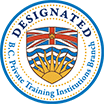Hypnotherapy Program FAQs
Home » Hypnotherapy Program FAQs
Counselling Hypnotherapy Training
ABOUT OUR ONLINE HYPNOTHERAPY PROGRAM
OUR ONLINE HYPNOSIS TRAINING COURSES
Orca Institute had one of the first web site’s online and its instructors have extensive experience in setting up and promoting a private counselling Hypnotherapy practice cost-effectively. Sheldon has experience in SEO, advertising and Social networking. He is happy to share that knowledge with his students.
OUR HYPNOTHERAPY COURSES, DESIGNATIONS, FORMATS AND PAYMENT PLANS
Counselling Hypnotherapy Diploma: Counselling Hypnotherapist (Cand.). “Cand.” is removed after the successful completion of our Counselling Skills Program. Resident Hypnotherapist Certificate: after completing our Basic Hypnotherapy Program.
All of our programs are on the Moodle platform. We are experienced online providers using Moodle to host all of our online programs. Moodle is the world’s most widely used learning management system and is trusted by institutions such as the London School of Economics, State University of New York, Microsoft, and the Open University.
Government Financial assistance is available for eligible students who are Canadian citizens or Permanent Residents, through the Canadian and provincial government student loan programs. Orca Institute may assist prospective students in applying for Provincial & Federal student loans. This applies only to our Counselling Hypnotherapy Diploma (HP-301) and Counselling Skills Program (CS-100-600).
“Clients” can be other students or Acquaintances, in person or online. Video recordings of 1 session for the Basic course and 2 sessions for the Diploma course are uploaded for evaluation. Hours and notes are submitted online.



